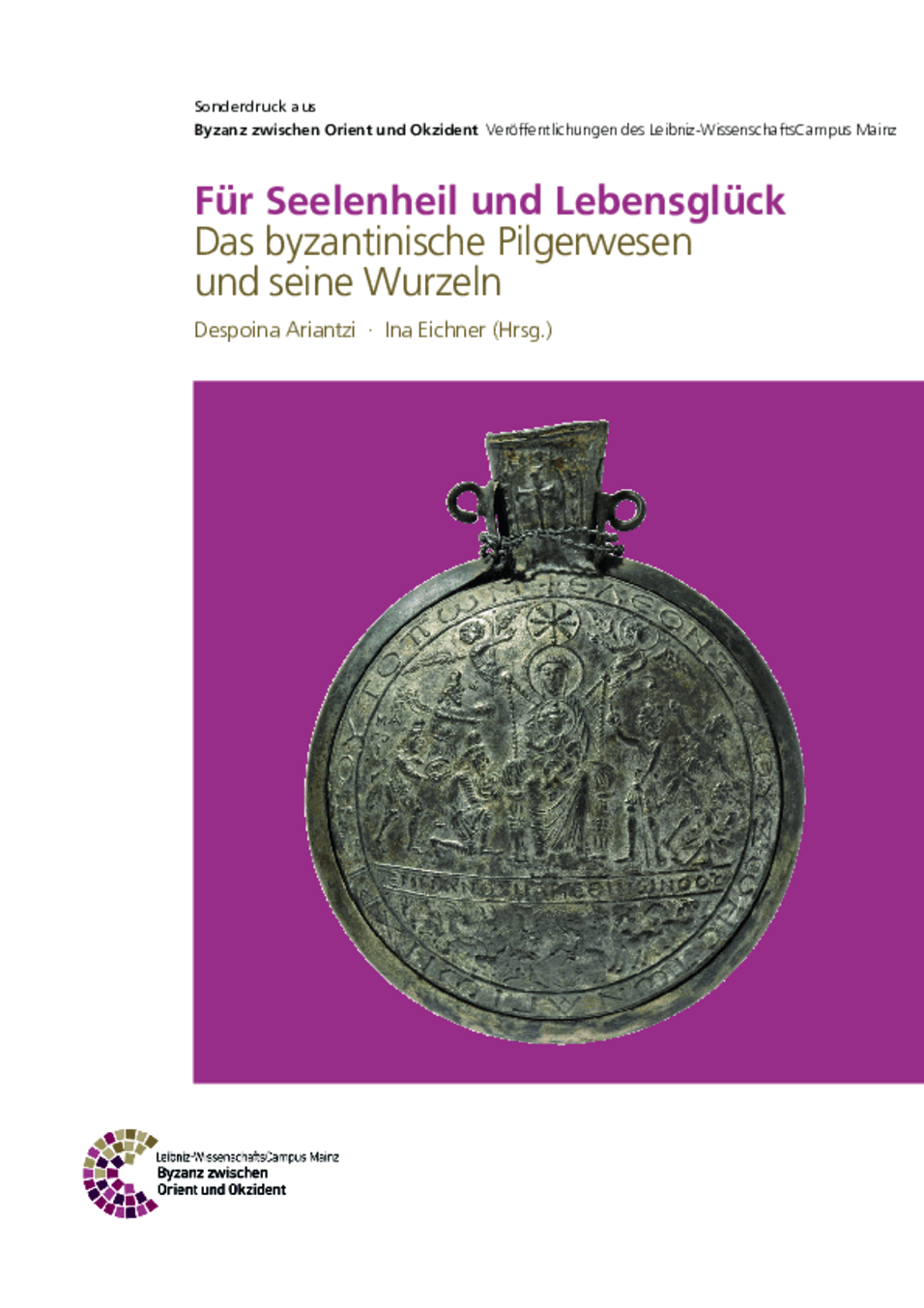10. Band der Publikationsreihe Byzanz zwischen Orient und Okzident ist erschienen.
Buchdaten
Despoina Ariantzi / Ina Eichner (Hrsg.)
Für Seelenheil und Lebensglück. Das byzantinische Pilgerwesen und seine Wurzeln
Byzanz zwischen Orient und Okzident, Band 10
1. Auflage 2018, 387 Seiten,
21 x 30 cm, Hardcover, fadengeheftet
ISBN 978-3-88467-299-0
Printausgabe erhältlich im Online-Shop der Verlagsgruppe Schnell&Steiner
Inhalt
Die internationale Abschlusskonferenz des Projekts "Für Seelenheil und Lebensglück. Das byzantinische Pilgerwesen und seine Wurzeln" versammelte Wissenschaftlerinnen und Wissenschaftler aus den verschiedensten Disziplinen, die sich dem Phänomen der Pilgerfahrt im Byzantinischen Reich widmeten.
Die Beiträge erörtern die Zusammenhänge des byzantinischen Pilgerwesens mit der heidnischen und jüdischen Pilgerfahrt. Vor allem aber präsentieren und diskutieren sie die Praxis des Pilgerwesens zwischen "Kult und Kommerz" im sakraltopographischen und landschaftlichen Kontext einzelner Regionen und Orte des Byzantinischen Reiches von Ägypten bis Bulgarien und von Süditalien bis zum Heiligen Land.

